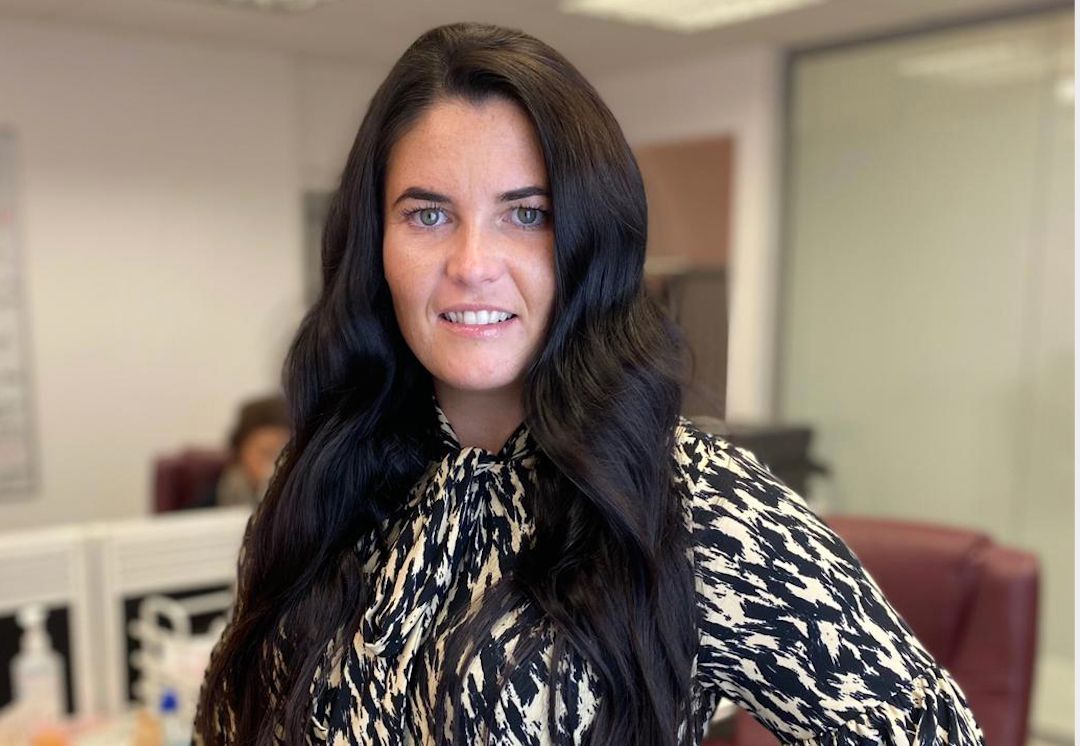Influencers can be the most cost effective way to bring a drinks brand to market, providing you know what you are doing, claims Think Wine’s Katherine Jones.
It’s perhaps not surprising that Katherine Jones gets a little frustrated when she finds herself having to, once again, justify the role of influencers to another sceptical – borderline condescending – member of the traditional wine trade.
The whole concept of influencer marketing might seem new and very different to those in the old school wine industry, but for Jones it is a sector she has been working in for close to a decade and, frankly, has little time for those who question its methods and effectiveness.
She’s in no doubt: “Influencer marketing is the most successful and effective advertising and promotion I do.”
In the four years she has been running her own influencer and social media marketing business – We Are Social Nation – she has helped generate over £20m in sales for the brands the agency has worked with.
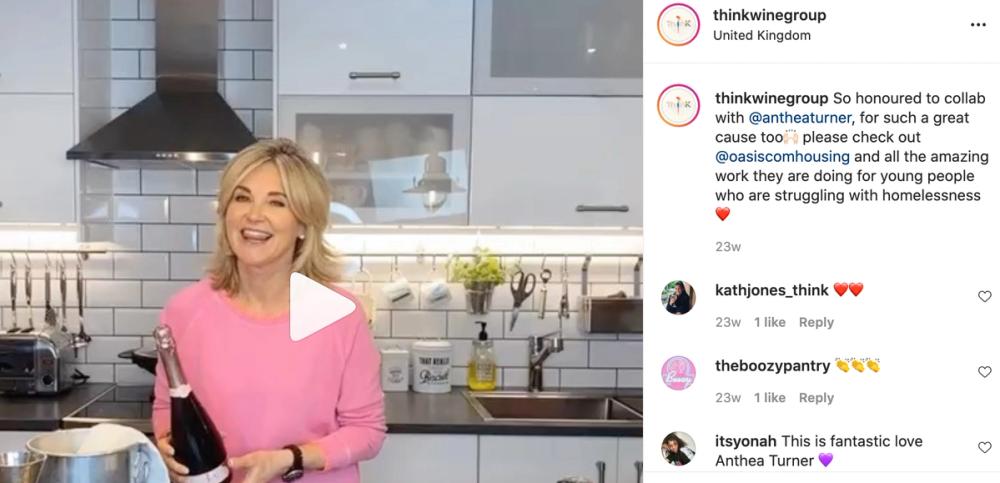
Katherine Jones has been able to use her influencer marketing skills to promote her ThinK Wine Prosecco brand by working with TV personalities such as Anthea Turner
In the early days of her influencer campaigns, she worked with influencers that might increase sales by as much as £50,000 to £100,000 for a whole variety of beauty and fashion brands overnight.
She can, though, to some extent understand people’s initial curiosity as to how powerful any influencer really can be. She was asking the same questions when an opportunity came up to leave what was a safe, sales job in the corporate world of human resources, to take a sales job working for a new celebrity agency in Liverpool that was all about working with reality TV stars and helping them make themselves more well known.
It was, she says, a mixture of a chance to get back to her home city of Liverpool, after a long period away, and the opportunity to start in a completely different kind of business that made her say ‘yes’ and go for it.
“It was half the money I was on before, but I had the chance to earn good commission and was given a company car and it also sounded like a lot of fun,” she says.
World of celebrity
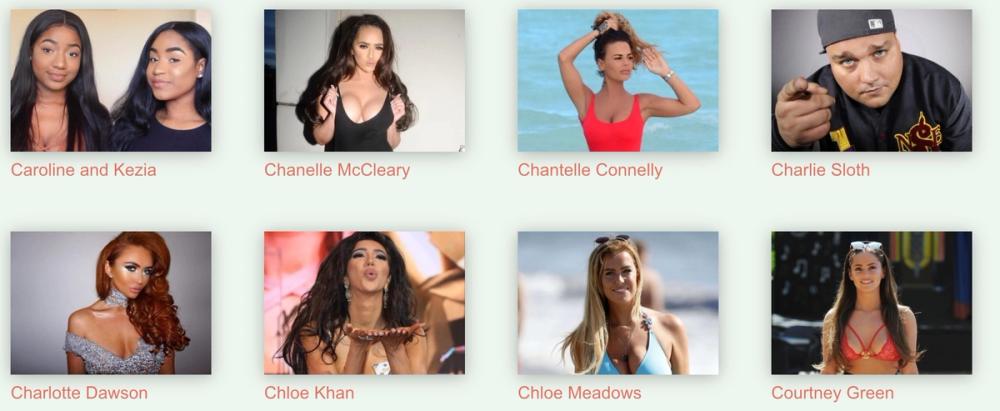
Some of the reality TV stars and personalities that are part of Katherine Jones’ We Are Social Nation influencer marketing agency
As it turned out “it was the best thing” she ever did and it opened her eyes to another world of celebrity endorsements, nightclub appearances, and magazine interviews, where the product you are selling is the individual personalities of the TV stars and celebrities on your agency’s books.
It was a time when marketing agencies, the media and big brands were making up the rules as they went along, says Jones. “The idea of social media promotion was brand new. We would get fashion houses sending us dresses for our reality TV stars to wear. Which they did initially just because they liked the dress and it was free. But then that’s when we started to realise we could monetise this and we stopped accepting gifts and stared asking for money.”
She adds: “That was about eight years ago and the return on investment for these brands was phenomenal. Pay us £1k to get one of our clients to endorse a brand in a post – say a new white whitener brand – on social media and that brand would immediately £35k or £40k in sale. We were soon doing posts that were getting sales of £40k, £50k and £100k overnight.”
There were also no regulations about what you could and couldn’t do and certainly no #ThisIsAnAdvert hashtags. “We were one for the first agencies to do this in the UK,” says Jones.
It was also when the agency had the idea of creating and getting its celebrities to sell its own brands and Jones was soon flying over to China on a regular basis working with manufacturers and producers to create a whole series of own label health and beauty and cosmetic products.
“We would find a product we liked, white label it and bring it into the UK,” recalls Jones. “It was a phenomenal success and soon we were hiring staff almost every day and we could not keep up with the speed of growth.”
She says soon the office, newly hired warehouses and even their own houses were full of all these cosmetic and health and beauty brands ready to be shipped out to the consumers who were liking what their celebrities were posting on their social media feeds.
A social wine brand
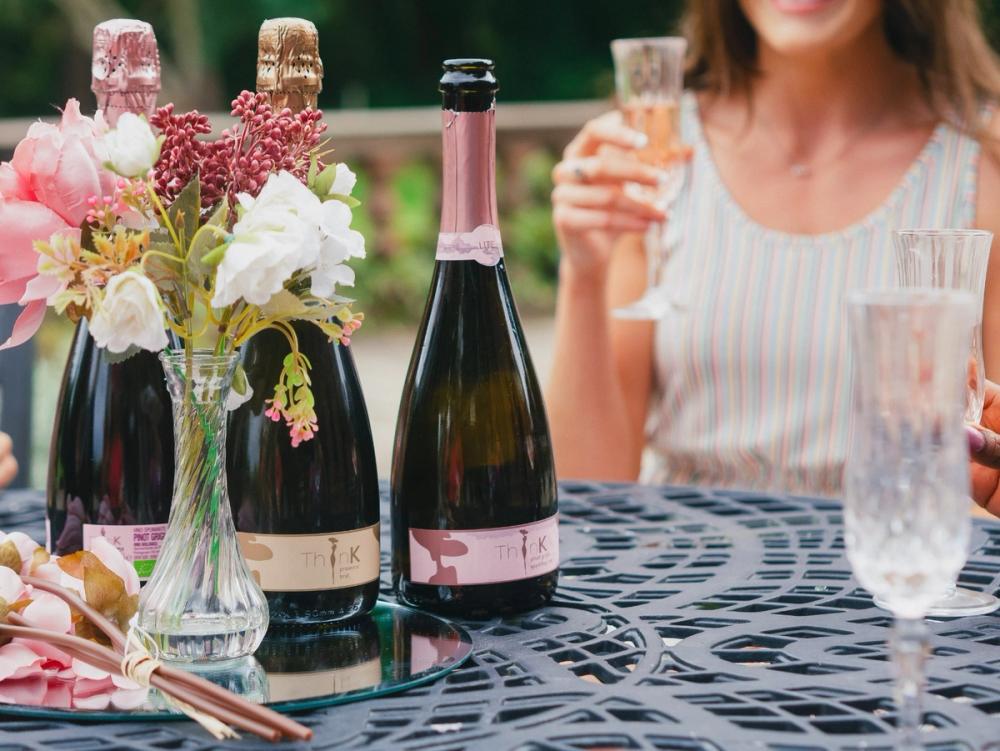
ThinK Wine has been developed to appeal to wine drinkers who like their wine and their sparkling wine in particular but don’t take it all too seriously
That’s when her thoughts turned to wine. As a keen wine drinker, who was already attending wine tasting events and dinners, she says she was frustrated by what she saw as a lack of choice for a premium reduced sugar wine brand that she knew her female friends were all looking for on a night out.
“I love wine and I love bubbles, but I am also fussy about what I drink. I knew I wanted to create an e-commerce wine brand that I could be passionate about,” says Jones.
The idea would eventually end up with her launching the ThinK Wine business, based around sourcing a reduced sugar, vegan Prosecco. Initially the idea was to introduce the wine through the initial social media agency she was working for, but after some disagreements over how the sales and shares for the brand would be handed out, she decided the time was right to go it alone and start her own company – We Are Social Nation – in January 2017. She has not looked back since.
Now the two businesses – We Are Social Nation and ThinK Wine Group – sit alongside each other with her sales, marketing, celebrity and influencers all helping to promote both sides of the business.
Jones admits she is far from a wine expert, but she knows exactly what her audience wants to drink and that is what drove her, on her 15 trips pre-Covid to Italy, to source and find the right style of wine for her target drinker – the 30 to 55 year old women who love a glass of quality bubbly, be it at home or out with friends.
With so many of her girlfriends watching even more what they eat, and either going vegan, seeking out organic food and drink, and reduced sugar options, she also wanted her wine to tick those boxes too.
“I wanted to create a lifestyle sparkling brand that would be the equivalent of drinking Moet at the races. But a brand that was health conscious and one that girls of all ages would love,” she explains. “I have tried to make a luxurious, delicious wine with low sugar (5gm)”.
This is far from being a house Prosecco, stresses Jones. “We are at a premium price for a reason.” The brand sells online for £21 a bottle.
Lockdown frustrations

ThinK Wine uses its Instagram feed to bring its Prosecco to life as a drink to enjoy with friends on a night out or night in
The ThinK Wine brand was launched around 18 months and Jones admits she has been frustrated by the on-going Covid restrictions as it has curtailed her plans to gain more retail, and, in particular, on-trade listings.
She is now working with two regional distributors – Hops & Barley in the north west and Thomas Ridley in the south– to help build Think Wine’s presence in the market and is looking forward to getting back on the front foot once the on-trade fully re-opens.
ThinK Wine has, however, lived up to its billing as an e-commerce wine by driving strong sales over the last year online and is starting to build a strong subscription database which Jones will be key to maintaining sales in the long term. Her focus is to build the brand in places where she and her friends like to go and enjoy themselves, so premium bars, hotels, racecourses, hospitality at a football or sporting event, rather than be seduced by a cheap offer to sell the wines in Tesco.
“We want to target very specific bars and restaurants,” she adds. Outlets where she can work with her distributor to follow up any listing with events, dinners and social media activity. “We would also love to work with independent wine merchants who get excited about the quality of the wines.”
Jones also has plans to follow her Think Wine Prosecco with a range of red, white and rosé still wines, priced at around £14.00 and perhaps a Crémant down the line too.
Dos and don’t of influencer marketing
Jones says there are no hard or fast rules when it comes to determining which type of influencer might be right for you.
“It’s based on a multiple of factors. For ThinK Wine we look at their personality. Are they fun? Are they health conscious? What sort of lifestyle do they lead? Are they knowingly vegan? Do they take amazing images? You have to look at their followers and the kind of people that like and respond to their posts.”
She adds: “It also comes down to the style of photos they are taking, the colour palette they are using, what sort of mood do their posts generate? How does their overall Instagram page look like?”

Katherine Jones and her team work hard to make sure each image they post on Instagram portrays the values of ThinK Wine as a fun, relaxed Prosecco brand to share and be part of an aspirational lifestyle
The best way to really get a feel for how influencer marketing works is to get on and do it and see what works for you and what fails. “Live and learn,” is very much her motto. “Sometimes you have to take some campaigns on the chin.”
The time of day that people post can also be important for certain brands, particularly alcohol as you don’t really want to be looking at Prosecco pictures over breakfast.
The market, however, has changed in the last couple of years and is in danger of becoming over saturated, unless you really know what your are doing. She says some brands are now quite happy to throw money at influencers and not expect a hard return on investment. They just think it is the right thing to do and are not too bothered about the results. “They will just say here’s £10k, go and spend it as you like,” she says.
For her, though, it is still by far, for her, the best form of marketing she does for ThinK Wine – much more so than any Facebook or other social media advertising. If she is doing a Facebook campaign the ones that work best are an influencer sharing their story and experiences with the brand.
Jones has not, to date, used what you might term a wine influencer to promote ThinK Wine, primarily because she has been looking to target a specific type of female consumer and has not been playing on the actual “wine” element to drive sales.
“I have looked at wine influencers, but my world is more entertainers, TV presenters, reality TV stars. Only now I am starting to think about sending my wine to be tasted by wine critics or MWs.”
She has, though, been working with wine consultants on how she can build closer ties with the trade and build more credibility for the wine quality of the brand.
Harry Crowther, contributor to The Buyer and wine educator with his new Grain to Grape training programme, has, for example, successfully worked with Jones on creating a couple of videos talking about the wines from a quality and winemaking perspective. “He has been really helpful and supportive and could not have done more for us,” she says.
She has also been working with wine consultant Fran Bridgewater in helping to build up stronger ties with the wine industry. “She totally gets it and understand this is the future and it is not a gimmick.”
Spreading the word
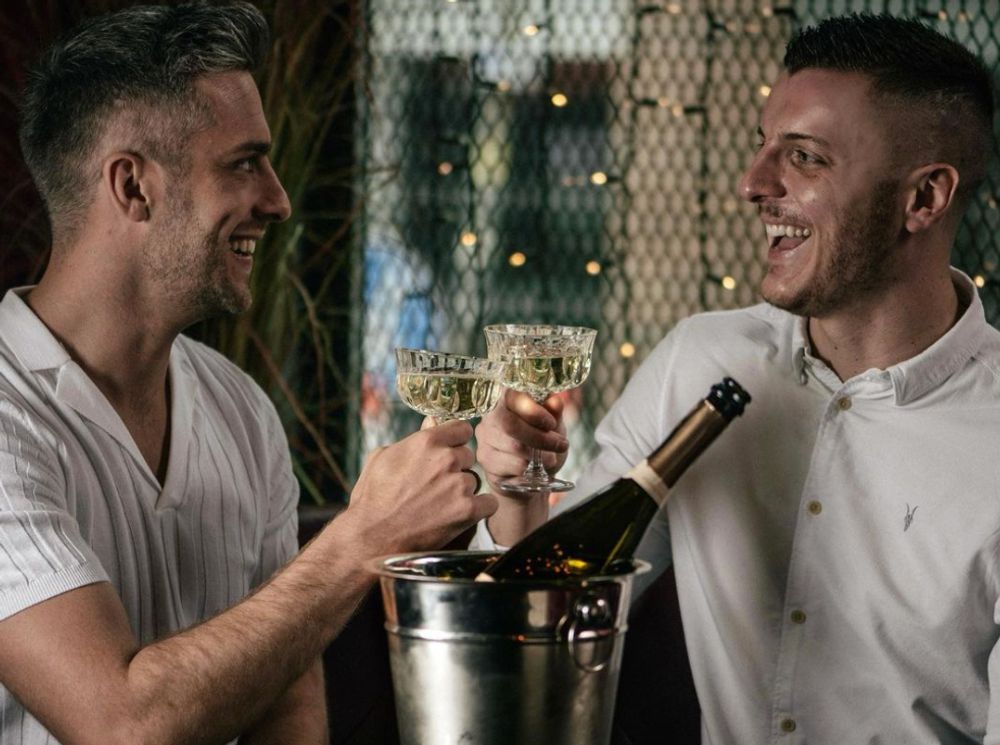
ThinK Wine also looks to target men and promote Prosecco in the same way it does to its female audience
The key for digital marketing is to spread your spend between say a Facebook campaign with SEO and Google search. That’s the way to get more people seeing your brand on different occasions. “But what we spends varies every month depending on what messages we want to put out,” she explains.
The key, though, she says is to be patient and not expect an instant return. It can take three months minimum to get a response from a Facebook or SEO campaign, it’s important you keep that momentum going.
The lockdown may have kept all of Jones’ plans at bay for a while, but rest assured you will be hearing a lot more from her, and her roster of influencers, in the months to come.
* If you would like to find out more about Think Wine then go to its website here or you can contact Katherine Jones on Kath@thinkwinegroup.co.uk and at @thinkwinegroup.
